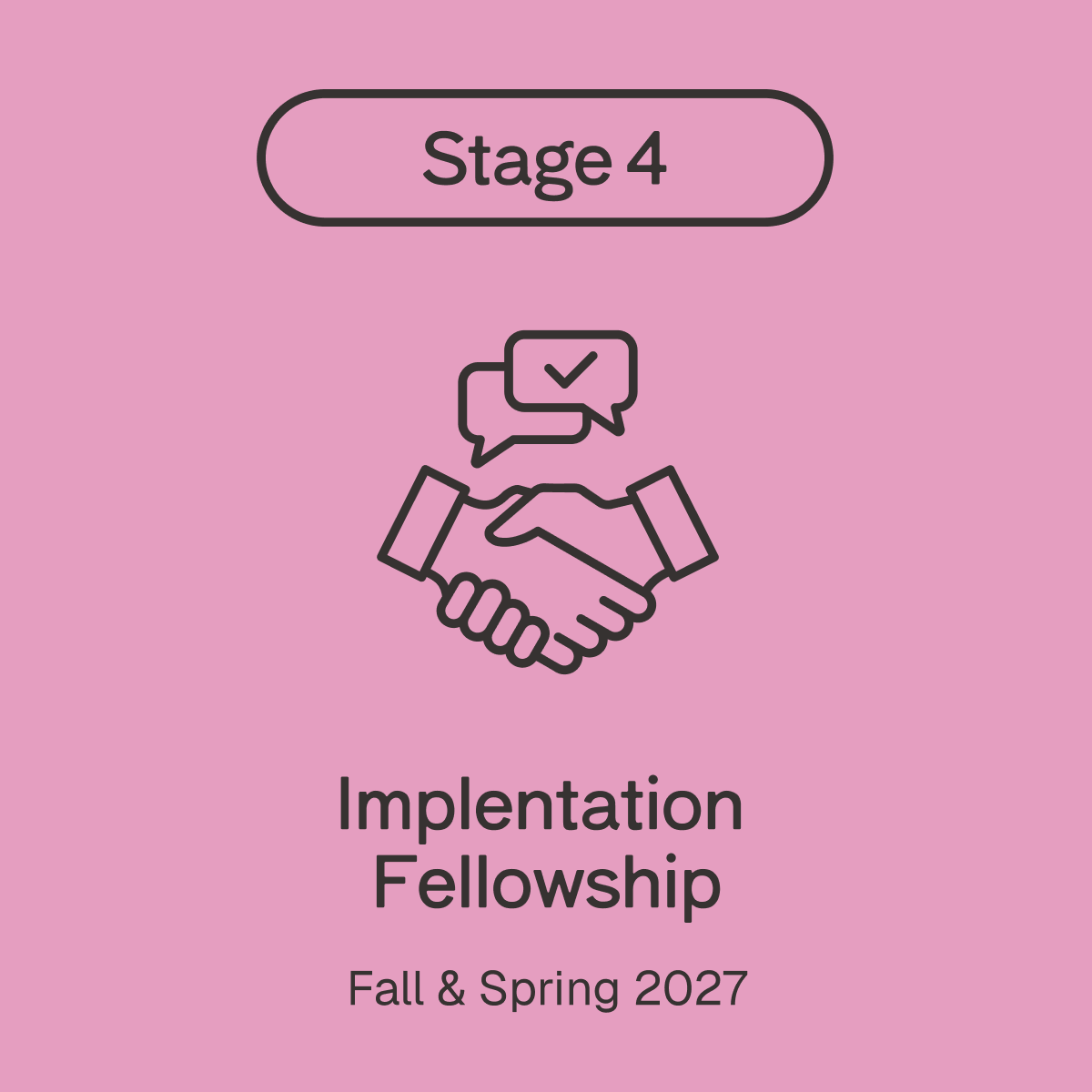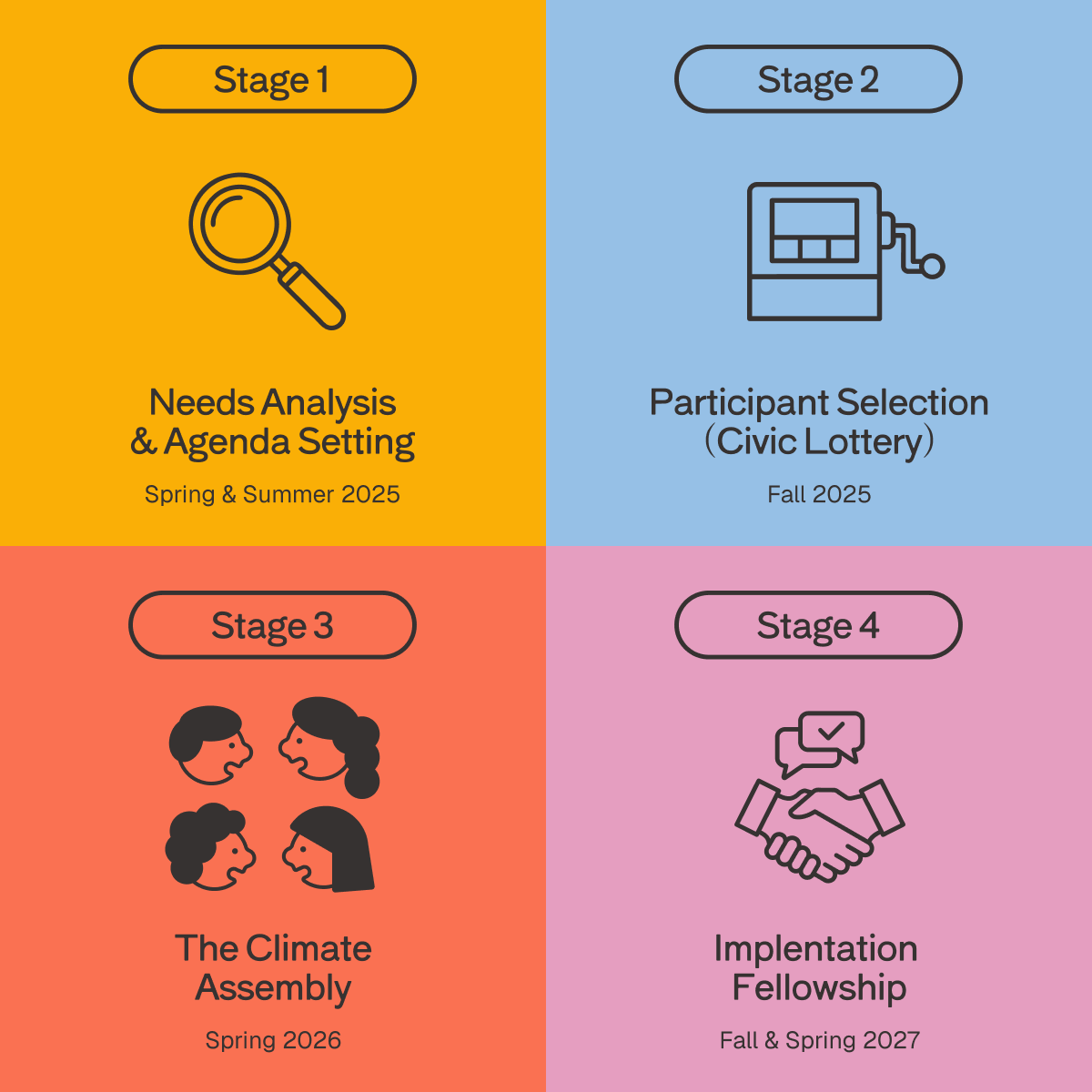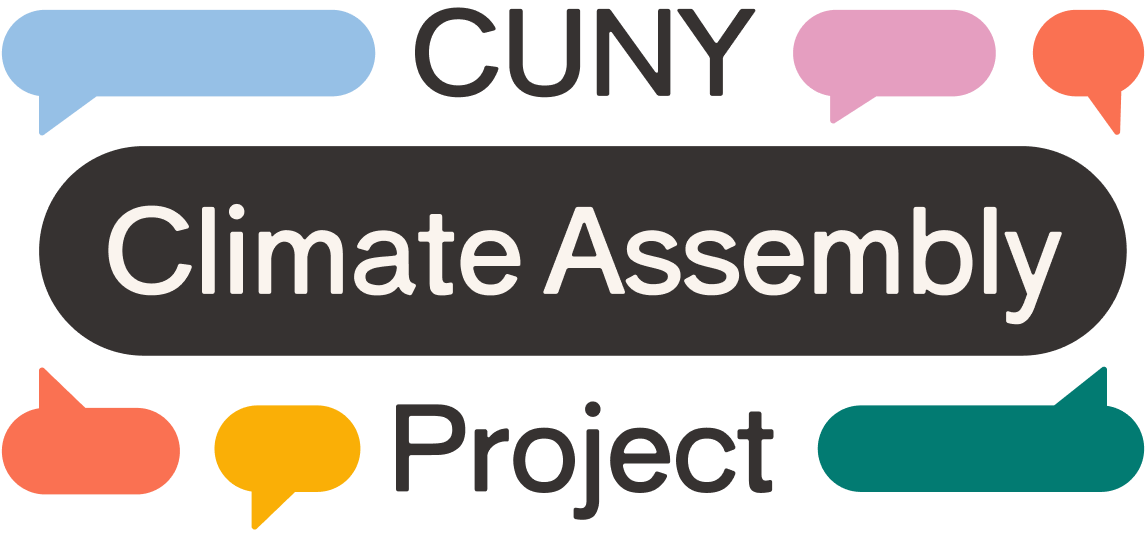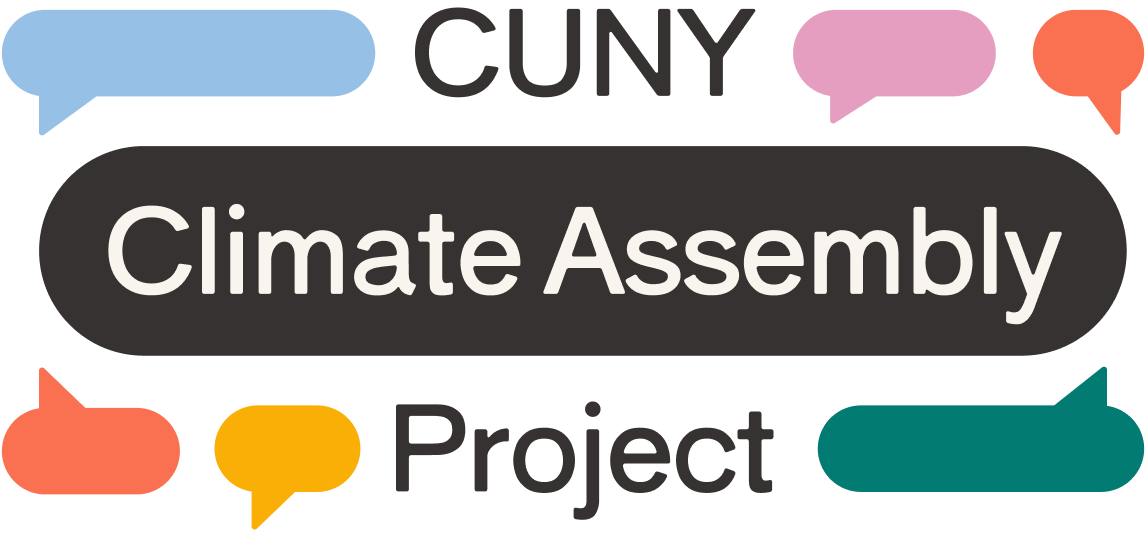
Overview
The CUNY Climate Assembly Project (CCAP) is a deliberative democracy initiative that empowers CUNY students to shape climate futures at CUNY and beyond.
At the heart of this initiative is a Climate Assembly. CCAP will gather a group of students, broadly representative of the CUNY community, to participate in a year-long democratic process. During the assembly, students will weigh all sides of a specific policy issue at CUNY and develop solutions for the broader CUNY Community. After the assembly, implementation efforts will be advanced by student fellows working with CUNY stakeholders.
Launched in February 2025, CCAP is the first university-convened climate assembly in the US. As the nation's largest urban public university, CUNY is an ideal locale for such an ambitious democratic initiative. Led by the Institute for Research on the African Diaspora in the Americas and the Caribbean (IRADAC) and the Center for the Humanities (C4H) at the CUNY Graduate Center, CCAP is made possible by the generous support of the Andrew W. Mellon Foundation. See the CCAP press release for more information.
CCAP will enable CUNY students to engage in civic problem-solving as they learn, work, and lead in every sector of civil society, expanding how New Yorkers practice democracy beyond elections.
What is a Climate Assembly?
Climate Assemblies gather everyday people to learn, deliberate, and develop policy solutions to a challenging climate issue.
Also called citizens’ assemblies, civic assemblies, or policy juries, these forums democratize policymaking by expanding who participates and how they collaboratively problem-solve.
Drawing on a long and diverse lineage of democratic decision-making practices, participants are selected through a civic lottery to ensure the assembly represents their communities' unique demographic and political diversity. Unlike a political poll or town hall, the assembly spends significant time (30-115 meeting hours) learning with a diverse range of experts, collaborating through facilitated deliberations, and developing recommendations on a complex climate issue. These recommendations inform policy and implementation strategies taken up by local governing bodies and community stakeholders.
Participants are paid and provided with services like interpretation and child care to remove barriers to participation. Small group facilitators aid in bridging partisan divides and ensuring all voices are heard, and public forums and engagements outside the assembly allow the broader public to learn and weigh in on the topic at hand.
Climate assemblies have been proven to address complex & polarizing issues
While assemblies have catalyzed climate action around the world, there have been over 700 examples worldwide addressing a variety of civic challenges, such as affordable housing, health care, education, and even constitutional reform on marriage equality and reproductive rights.



What advantages do climate assemblies afford over traditional policy pathways?
- Lead to better policy outcomes. Deliberations grounded in expert analysis and lived experience create informed decisions based on evidence rather than opinions.
- Create space and provide a framework to tackle complex problems that require long-term solutions that extend beyond electoral cycles.
- Provide legitimacy to make hard decisions with tough trade-offs. This proves especially true for climate policies that require substantial adaptation, compromise, or sacrifice.
- Build public awareness and momentum for cross-sector action on issues that need an ecosystem of actors to drive systems-level change.
- Helps to depolarize civic discourse while building discursive capacity for engaging in tough conversations across ideological divides.
- Increase trust in civic institutions by engaging in collaborative governance with the people they serve.
- Revitalize people's political agency by creating pathways for a general public to effect change on complex systems level issues.

See examples from around the globe
Stage 1
Needs Analysis & Agenda Setting
Fall 2025
A needs analysis and agenda-setting process will identify the climate mitigation and adaptation issues that have relevance for students, CUNY administration, and the broader CUNY community. The scope of the issue will help determine the number of students selected and the amount of time they will meet in the following phases.
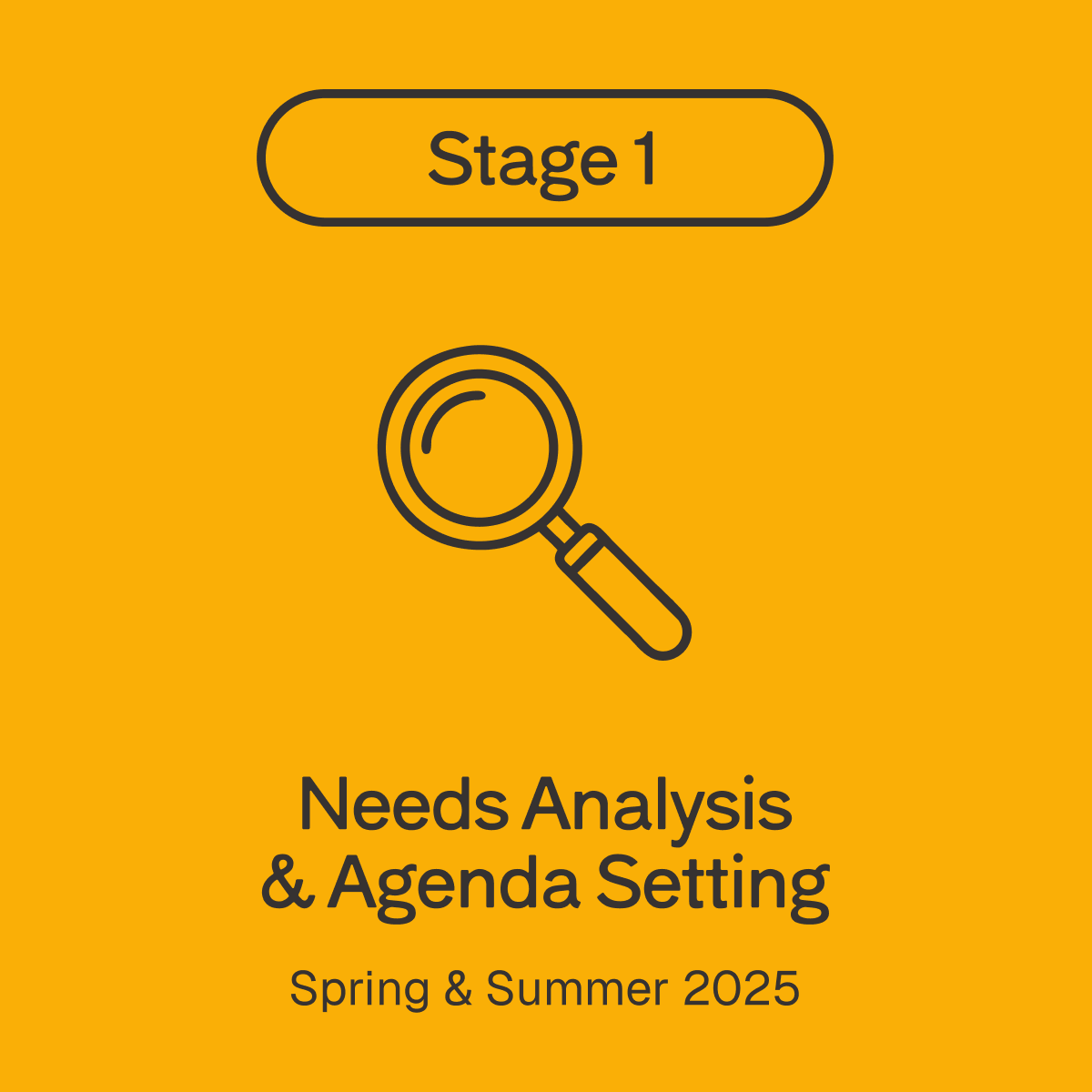
Stage 2
The Civic Lottery
Fall 2025
The Civic Lottery will randomly invite and select students to be a part of the assembly, ensuring CUNY’s unique demographic diversity is fully represented.
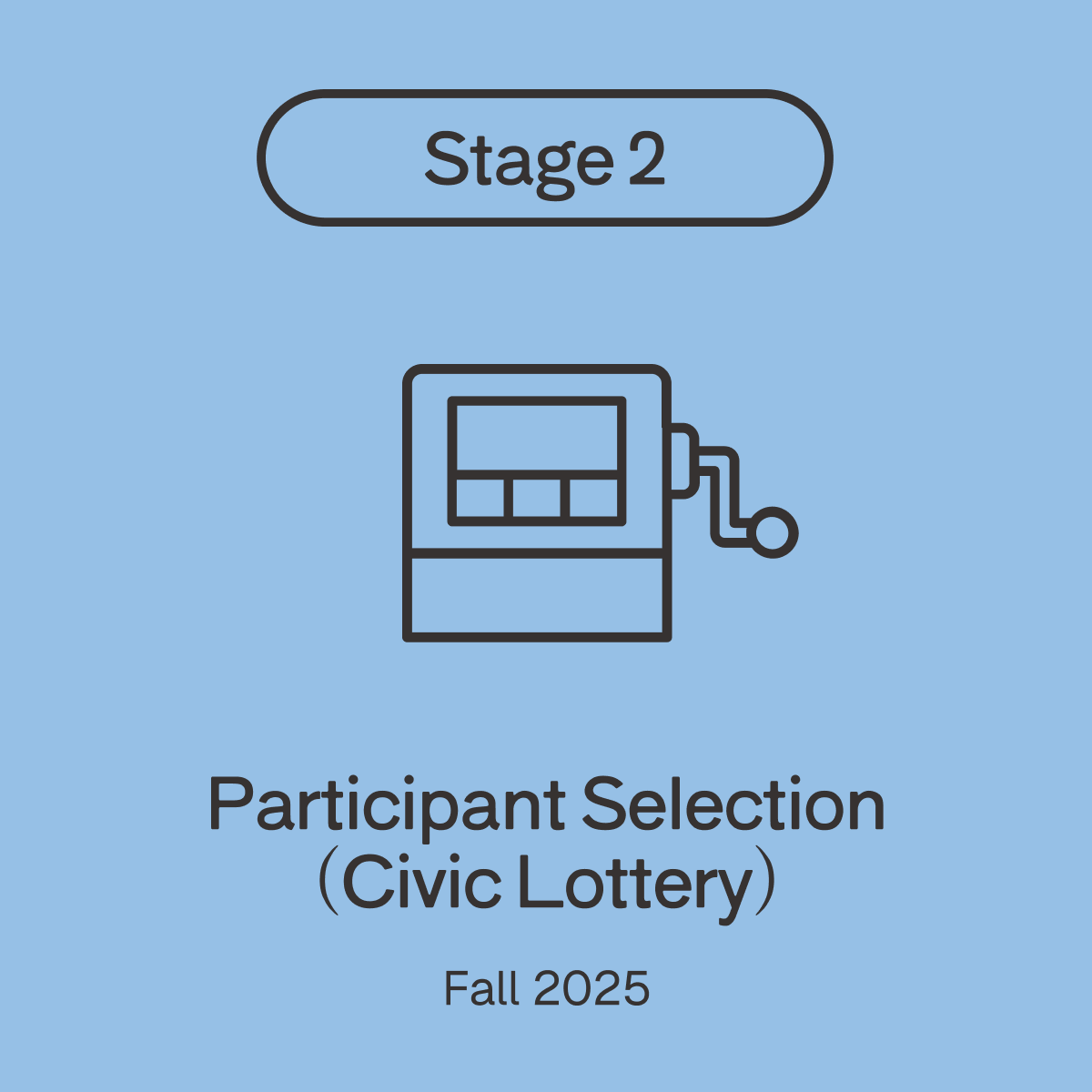
Stage 3
The Climate Assembly
Spring 2026
The Assembly will bring together CUNY students selected in the civic lottery to learn with experts, deliberate on challenging trade-offs, and generate solutions on a specific climate policy issue.
The CCAP Impact Network of student organizations, university centers, faculty, and staff will connect the assembly to the broader community through public forums, classroom curricula, and other engagement strategies.
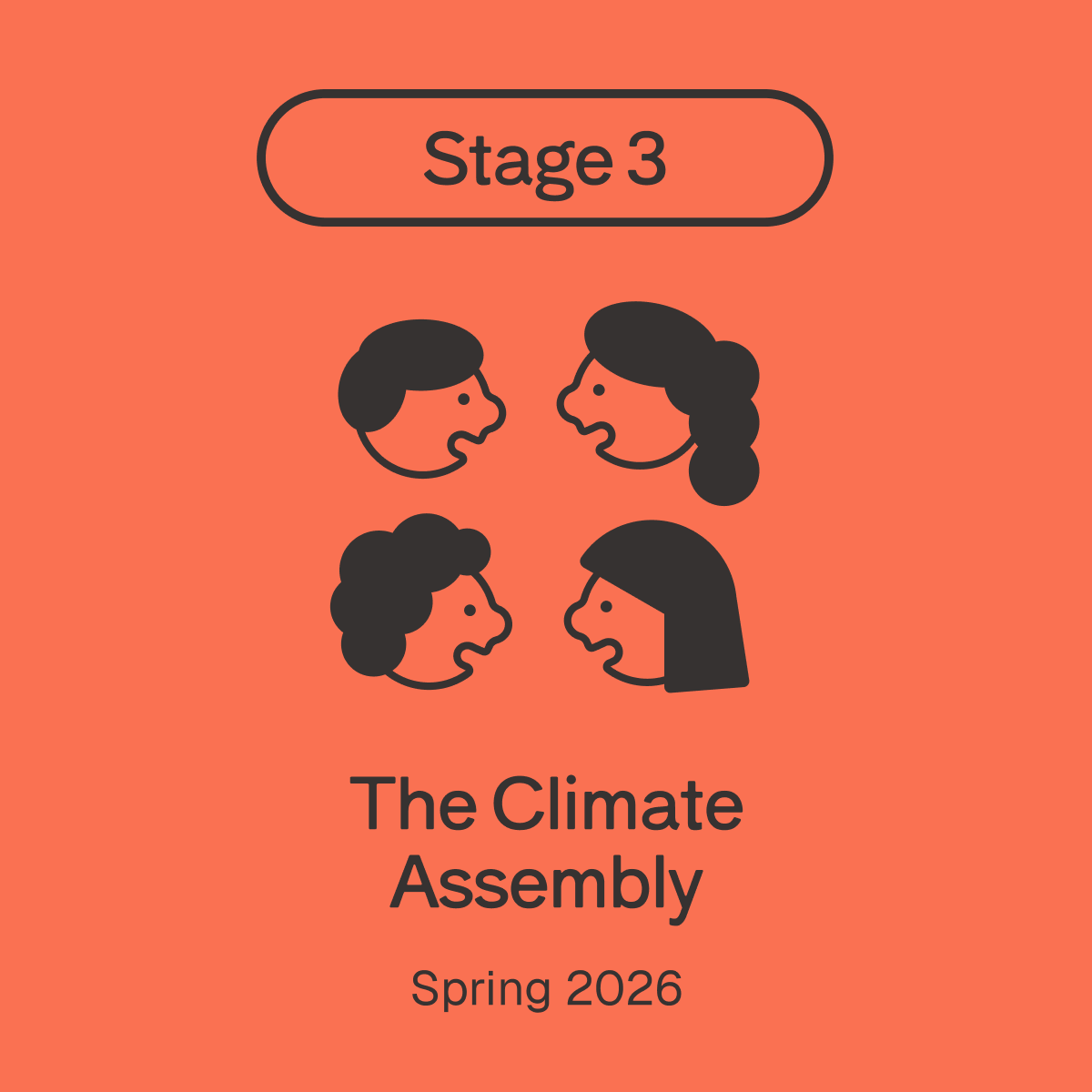
Stage 4
Implementation Fellowship
Fall 2026 & Spring 2027
The Post-Assembly Implementation Fellowship will support a portion of the students from the assembly to advance the advocacy and implementation of the resulting recommendations.
